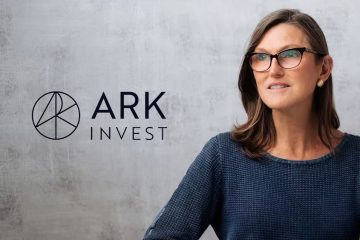Betterment wants your bank account as well as your investments

THOSE SAVING for retirement face plenty of quandaries. Spending today is more fun than waiting to spend tomorrow. Once savings have been amassed you must decide what to do with them. The possibilities are many and complex. And people are prone to error, buying when asset values are high and panic-selling when they dip. The promise of robo-advisers, which offer computer-generated financial advice, is to assist savers with these problems far more cheaply than human ones.
Rock-bottom fees, usually just 0.25% of assets, have helped them grow fast. Betterment, a robo-adviser based in New York that was founded in 2008, manages $ 16bn-worth of assets. Wealthfront, a rival from San Francisco, manages $ 11bn. But skimpy fees mean they need hefty assets to survive. In a report in March HSBC claimed that robo-advisers need to oversee $ 11bn-21bn of assets to break even. Jon Stein, Betterment’s boss, says that the company is profitable, helped by low costs for running the accounts. But it is probably a close-run thing. Betterment has launched some pricier, fancier products—but its business model would suggest that revenues of just $ 40m must pay for nearly 300 employees, swanky midtown Manhattan offices and advertising blitzes.
Get our daily newsletter
Upgrade your inbox and get our Daily Dispatch and Editor’s Picks.
Competition in robo-advice is fierce, as established asset managers have muscled in. Vanguard, which manages $ 5.3trn of assets, mostly in index funds, has a robo-advisory product, with $ 115bn. So does Charles Schwab, a bank in San Francisco, which manages $ 37bn in its “intelligent portfolio” product. Some smaller robo-advisers have paired up with industry giants to survive. Aviva, a British pension fund, bought a majority stake in Wealthify, a robo-adviser based in Cardiff, in 2017. But Betterment is taking a different route. On July 23rd Mr Stein announced that it was launching savings and current (checking) accounts, with the aim of becoming a “one-stop shop” for money management.
Betterment will not become a bank. Instead it has agreements with regional banks, which will hold deposits. This, says Mr Stein, allows it to offer generous terms. Rather than leaving deposits with one bank, Betterment will place them wherever rates are highest. It can split customer deposits between banks, meaning greater federal-insurance coverage. Less concerned about the stickiness of deposits, it can offer unlimited withdrawals.
The result is compelling for customers. The savings account offers a juicy interest rate of 2.69%, around 0.2 percentage points higher than the best high-yield savings accounts elsewhere. Federal insurance covers $ 1m, four times the usual limit. The current account, due to launch later this year, will have no minimum balance or account or overdraft fees, and will reimburse all fees for using an ATM.
If successful, the shift in strategy could put to rest worries about profitability that have dogged both Betterment and the robo-advisory industry more broadly. New account customers might be tempted to use advisory services, too. Mr Stein also hopes that the firm can encourage account-holders to save more. More than half of Betterment’s customers transfer money automatically into their investment funds. If the firm manages more current and savings accounts, it may be able to increase that share.
The launch comes with risks, however. The first is that it may irk regulators. Deposits are supposed to be a reliable source of funds for banks. If Betterment gets them to compete for its customers’ funds, not only would banks’ margins be squeezed but deposits could become flightier.
The second is that the terms are too generous to be sustainable. Betterment has raised $ 275m to fund its growth so far, but has not had to raise capital since 2017, when it added $ 70m, valuing the firm at $ 800m. Mr Stein expects its account products to be profitable from launch, but admits that there may be a “learning curve” when it comes to managing them. To offer customers compelling investments, Betterment needs to be a sound investment, too. ■




